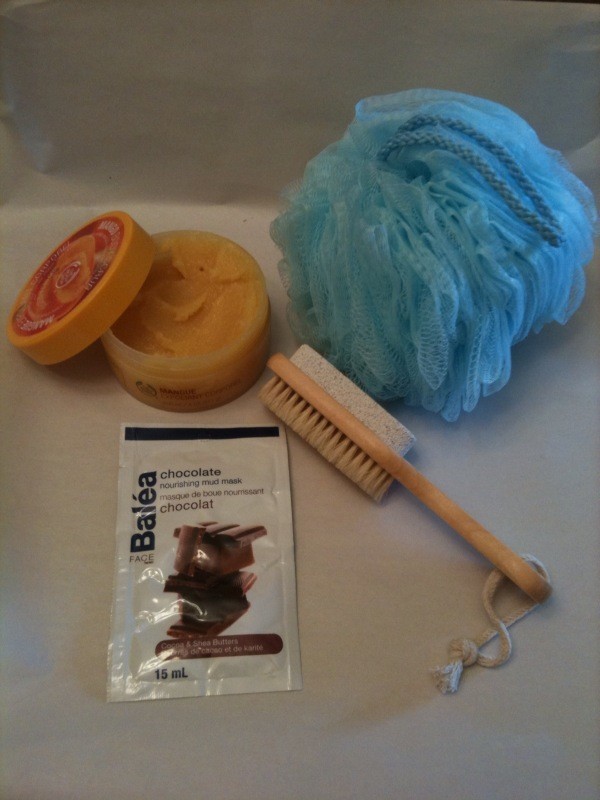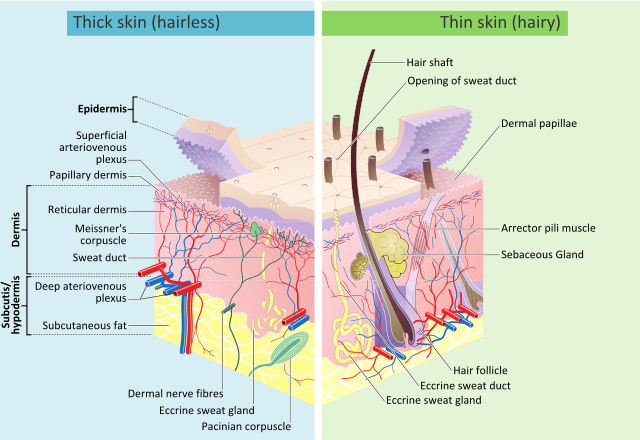Simple Ways to Avoid Dry Skin
Dry skin does not often seem like a serious ailment. But it can be. The skin is the barrier that protects the delicate internal environment of the human body from the harsh external environment. Dryness may not immediately seem like the skin is now compromised but it actually is to some degree. As the drying worsens, dangerous microbes in the environment can gain entry into the body causing serious and even life-threatening infections. Similarly toxic chemicals can seep into the body. Therefore dry skin should be avoided as far as possible.
Dry Skin Disease
Most of us do not think of dry skin as a medical problem. Occasional dryness that is quickly remedied on its own or can be corrected with simple moisturizers may not be an immediate cause for concern. But chronic dry skin is a problem. The medical term for dry skin, particularly if it is chronic, is xerosis cutis. Sometimes it may be a symptom of some underlying disease. Treatment in these cases should focus on the causative disease. But when it occurs due to poor skin care and lifestyle measures, it is important that you immediately intervene to prevent any future complications.
Tips to Prevent Dry Skin
In order to understand how to avoid dry skin, it is important to first know how the skin maintains its normal moisture levels. The outermost layers of the skin are composed of dead skin cells that are laden primarily with a protein known as keratin. It is this keratin that is largely responsible for the resistance of the skin surface to various factors in the environment. The tight junction between the keratinocytes further contributes to a surface that cannot be easily breached by dust, chemicals and microbes.
Layers of the human skin from Wikimedia Commons
In addition, the skin secretes various substances in sebum which moisturizes the skin surface and maintains the integrity of the keratin and its tight junctions. Sebum is essentially a skin oil and is constantly secreted by the sebacaceous glands throughout the day. Fortunately though, the skin has a fairly high turnover and new cells are constantly produced, die and replenish the surface of the skin. Therefore to prevent the complication associated with dry skin, it is important to maintain the integrity of the outer keratin layer and constant supply of sebum.
Here are some quick tips for avoiding dry skin :
- Minimize your exposure to water and have short baths.
- Shower rather than soak in the bath tub.
- Use lukewarm or even cool water rather than very hot or cold water.
- Bathe daily, up to twice a day, but do not overdo it.
- Stay away from strongly scented soaps, shampoos and body lotions.
- Apply deodorant or perfume to your clothes rather than to your skin.
- Reduce the amount of cosmetics you apply to your skin and if possible, use it only for special occasions.
- Use gloves whenever handling detergents, even during simple daily tasks like washing the dishes or polishing furniture.
- Shield your skin from the sun and extreme temperatures. Use sunscreen as often as possible.
- Moisturize the skin regularly with a gentle unscented lotion, especially after bathing and drying.
Some of the common causative factors to dry skin are discussed in detail below.

Washing and Bathing
Most of us do not think of washing a part of our body or bathing as being potentially harmful. In fact it is an important part of daily hygiene that does keep some types of illnesses at bay. It is not so much about the act of washing or bathing that can contribute to dry skin as much as the duration and nature of substances used. Excessive washing of any part of the body and bathing too frequently can play a role in the development of dry skin.
Soaps and Shampoos
Most soaps and shampoos are surfactants. It allows for the otherwise water-impermeable sebum on our skin to become dissolved and wash away easily. In the process dust and dead skin cells that are mixed with the sebum are removed. Essentially soap causes your skin to lose its natural moisturizer and shampoos have a similar effect. Coupled with the use of abrasives, even a simple shower sponge, the skin is not just cleaned of dust and dirt but sebum and the most superficial layers of the skin are also lost.
Chemicals and Detergents
We may not give it much thought but our skin is constantly exposed to different chemicals throughout the day. The most problematic for the average person are detergents used for cleaning dishes, clothes, floors and windows. Detergents act in much the same way as soaps and shampoos but are much more stronger than these bathing surfactants. The harsh chemicals intended to remove stains and make surfaces shine can be devastating to human skin especially with daily or prolonged exposure. Even if a person is not allergic to detergents, it can still irritate the skin and cause irritant contact dermatitis which is characterized by dryness of the skin.
Strong Fragrances
What would soap be if it did not have a pleasant smell? Actually the fragrances in soaps can be detrimental to skin health. The more perfumed the soap, the greater its drying effect on the skin in most instances. Similarly other fragrant substances applied to the skin can be a problem like deodorants, perfumes, heavily scented cosmetics and even fragranced body lotions. It is not just about the alcohols used in making scents that are a problem but also the duration of exposure and amount of perfume or deodorant applies to the skin.
Hot Water
For most of us, having hot water at the turn of the faucet is the norm. Naturally we prefer bathing in water that is slightly higher than our internal body temperature and it has a relaxing effect and makes us feel “clean”. But hot water actually increases the degree to which the skin is stripped of sebum. It also compromises the outer keratinized layers of the skin. Short term exposure to hot water may not be a major problem but soaking in a hot tun for prolonged periods can contribute to dry skin.
Sun and Extreme Temperatures
Exposure to direct sunlight for long periods of time can have devastating effects on the skin. Apart from the inflammation seen as sunburn an the associated risk particularly with certain skin cancers like a melanoma, sunlight dries the skin in much the same way it can dry any substance. The skin loses water over time even if you are able to avoid sunburn. Similarly extremes of temperature may have a similar effect. Both cold weather and very hot water can also cause drying of the skin.
Cosmetics and Skin Applications
If your body does not need something, you should not use it. Unfortunately in the quest for youth and beauty, the very measures intended to take care of the skin can pose a problem. From cosmetics to beauty treatments, we at times tend to over-service our skin. Exfoliating is hailed as a sure way of maintain your natural glow but it actually strips the skin of its natural oils and even removes the outermost dead skin cells that would have been gradually shed. Many cosmetics also have a dehydrating effect on the skin and the applications needed to remove some cosmetics may further dry out the skin.



